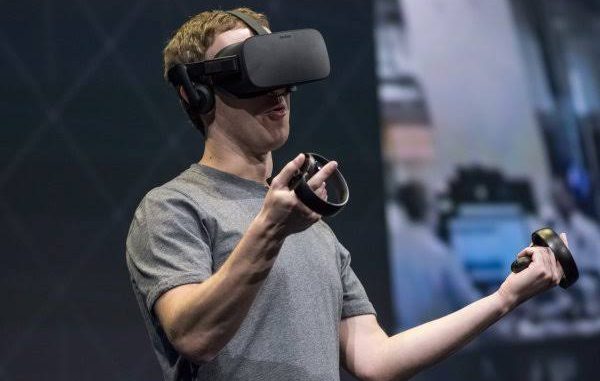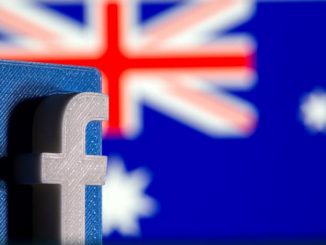
Facebook Inc.’s Oculus division is building a new version of its Quest standalone virtual reality headset, but the device is facing potential delays due to the impact of Covid-19 on product development and the global supply chain.
Bloomberg said the social-networking giant is working on multiple potential successors to the Quest. Some models in advanced testing are smaller, lighter, and have a faster image refresh rate for more realistic content, according to people familiar with the matter. These headsets also have redesigned controllers, said the people, who asked not to be identified discussing unannounced products.
The company hasn’t finalized which new version of the Quest it will release, and the final product may have different features. Facebook originally planned to launch the new model at the end of 2020, around its annual Oculus Connect conference, but the coronavirus pandemic could delay the headset from shipping until 2021, the people said.
Some versions in testing are 10% to 15% smaller than the current Quest. That, in addition to being lighter, makes them more comfortable to wear, one of the people said. The existing model weighs about 1.25 pounds, which is too heavy for some users wearing the device for extended periods. The models in testing are closer to a pound, the person said.
The company could sell the new model alongside the current Quest, or choose to fully replace it. A Facebook spokeswoman declined to comment on future products.
Facebook acquired Oculus in 2014 for $2 billion as a bet on VR as the future of digital communication. Chief Executive Officer Mark Zuckerberg predicted people would use the technology to connect with each other online through shared experiences, such as immersive video games and other 3-D entertainment.
That vision has not fully materialized yet, partly due to a lack of broad consumer adoption and sometimes limited content. However, with millions of people stuck at home during the pandemic, VR usage has increased.
ALSO READ: Zoom Parties Are So Five Weeks Ago: Hello Virtual Reality
Oculus is also healthier as a part of Facebook than some other companies in the field. Startup Magic Leap Inc. has struggled to perfect its augmented-reality technology, slashed jobs and is considering selling itself. North, another AR company, was also seeking a buyer earlier this year.
For the new Quest device, Facebook is testing the removal of the fabric from the sides and replacing it with more plastic like the current Oculus Rift S. It’s also considering changing the materials used in the straps to be more elastic than the rubber and velcro currently used, according to the people familiar with the matter.
The Oculus Quest line is Facebook’s mid-range VR headset that doesn’t require a connection to a smartphone or PC. At $299, the current model is cheaper than Facebook’s most-powerful headset, the Rift S, which connects to a computer.
Facebook’s current Quest had been in and out of stock for several months, partly due to supply chain constraints caused by the pandemic. However, stock has slowly increased in recent days. On the company’s April earnings call, Zuckerberg said the product “surpassed our expectations” and that the company wishes it “could make more.” The company also said its Other Revenues segment grew 80% last quarter, “driven primarily by sales of Oculus products.”
Facebook was the No. 2 seller of VR headsets last year with about 28% of shipments, trailing Sony Corp., according to data compiled by Statista. Virtual reality encompasses users almost entirely for watching movies and sports and playing games. Augmented reality meshes the real world with virtual images.
Oculus is also building an AR headset. Software and app work for this product continues, but the virus has slowed hardware development with some employees losing access to lab facilities, the people said. It’s unclear yet if this has delayed the planned product time line, which included a 2023 launch.
Apple Inc. has been aiming to ship a VR headset in 2021 or 2022. An AR device is slated for 2023, according to people familiar with the situation.
The updated refresh rate of the new Quest VR headset is at least 90Hz, up from current model’s 60Hz, making video and games appear smoother. The company is testing some Quests with screens capable of displaying up to 120Hz, but the company could cap this at 90Hz to preserve battery life, the people familiar with the matter said.
Some models of the new headset in testing also continue to have a physical switch for adjusting interpupillary distance, or IPD, which is the distance between the headset’s internal displays. That mechanism is important because it helps users adjust the displays to fit their eyes to avoid headaches.
Facebook is also working on a redesigned controller that is more comfortable and fixes a problem with the existing controller, which has a battery cover that sometimes slides off. The new controller will be compatible with the current Quest, the people said.
The headsets in testing have four external cameras, versus five on the Rift S, and six degrees of freedom, which lets users look around in any direction and walk through virtual space as they would in reality. The new model will also still support the Oculus Link, a cable that lets a user connect the headset to a PC for improvement performance.




